The app that lets you pay to control another person's life
- Published
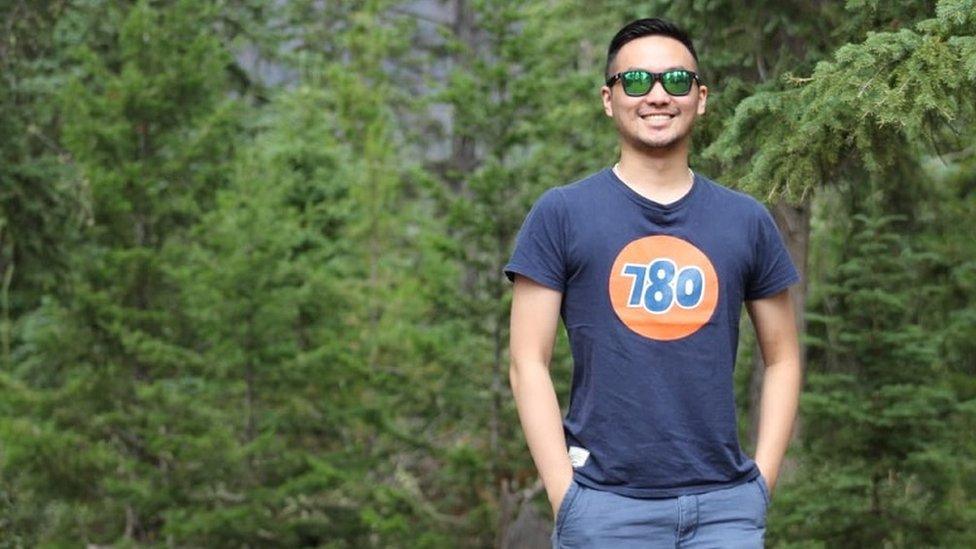
Brandon Wong allows his followers on social media app NewNew to vote on aspects of his everyday life
How would you feel about being able to pay to control multiple aspects of another person's life? A new app is offering you the chance to do just that.
When writer Brandon Wong recently couldn't decide what takeaway to order one evening, he asked his followers on social media app NewNew to choose for him.
Those that wanted to get involved in the 24-year-old's dinner dilemma paid $5 (£3.50) to vote in a poll, and the majority verdict was that he should go for Korean food, so that was what he bought.
"I couldn't decide between Chinese or Korean, so it was very helpful," says Mr Wong, who lives in Edmonton, Canada. "I have also used NewNew polls to decide what clothes I should wear that day, and lots of other personal stuff.
"I joined back in March, and I post [polls] three or four times a week. I've now had more than 1,700 total votes."
NewNew is the brainchild of Los Angeles-based entrepreneur Courtne Smith. The app, which is still in its "beta" or pre-full release stage, describes itself as "a human stock market where you buy shares in the lives of real people, in order to control their decisions and watch the outcome".
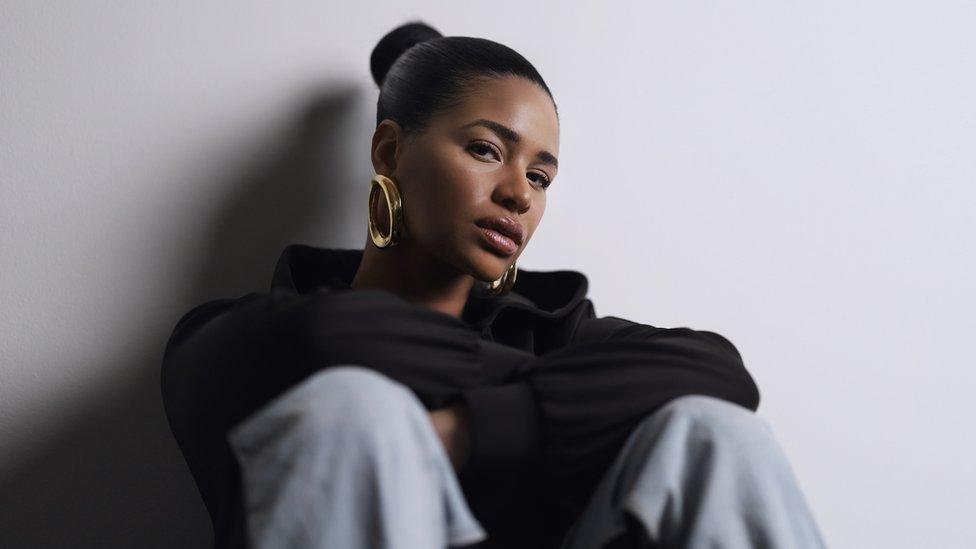
NewNew is run by entrepreneur Courtne Smith, who spent the past two years developing the idea
For many of us that sounds a bit ominous, but the reality is actually far less alarming. It is aimed at what it calls "creators" - writers, painters, musicians, fashion designers, bloggers etc.
It is designed as a way for them to connect far more closely with their fans or followers than on other social media services and, importantly, monetise that connection.
When a so-called creator sets up a NewNew account and attracts followers, he or she is encouraged to ask them via video clips to vote on aspects of both their work and personal life.
Mr Wong, who writes fiction on the Wattpad website and app, has also used NewNew votes to decide on what genre to write about next, plus character names and plot developments.
Whenever a vote is cast the creator gets the money minus NewNew's undisclosed commission.
The creator sets the question and a choice of two answers. Their followers get to vote, and can pay to do so as many times as they like. They don't get their money back, regardless of which way the result goes.
In addition to voting, followers can also pay extra - from $20 - to ask a NewNew creator to do something of their choosing, such as naming a character in a book after them. But the creator can reject all of these "bids", and if they do so then the follower doesn't have to part with the money.
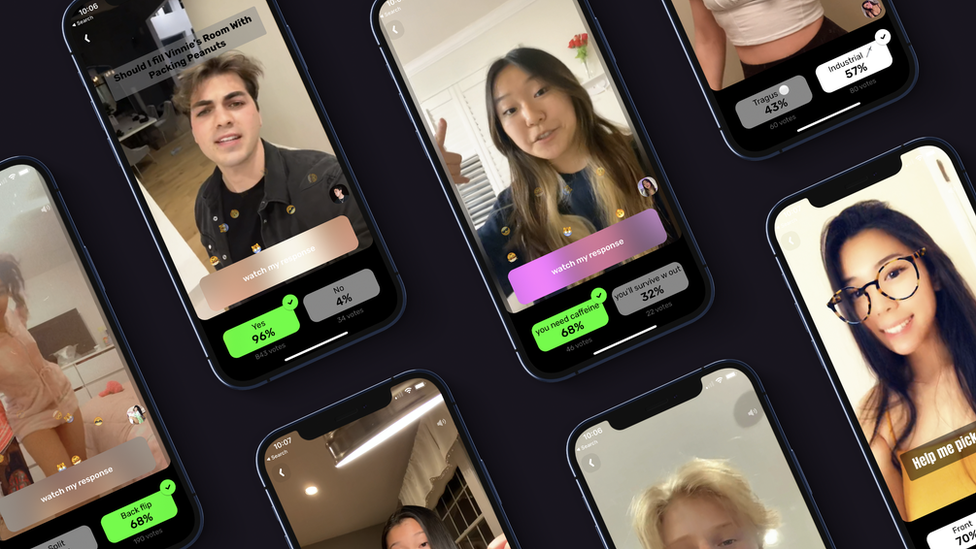
The creators post their polls via video clips
While other apps such as Wishbone ask members of the public to vote on things, NewNew says that what it offers - the chance to pay to vote on aspects of a person's work and personal life - is unique.
But will NewNew, which only launched two months ago and currently has fewer than 100 creators on board, have mass appeal? Social media expert Matt Navarra says he isn't sure.
"NewNew feels a bit like if TikTok met reality TV hit Big Brother and they had a baby, and both of those were phenomenally popular," he says.
"However, it feels a little bit gimmicky, and I wonder if the novelty value will be short-lived. Yet if choosing what outfit a stranger wears gives Generation Z a buzz then it could be on to something."


New Tech Economy is a series exploring how technological innovation is set to shape the new emerging economic landscape.

Co-founder and chief executive Ms Smith, a Canadian, has big plans for NewNew, and has some heavyweight backers. Investors include Peter Thiel, the billionaire co-founder of PayPal, and the first outside person to put money into Facebook.
Others with a stake in the business include leading US tech investment fund Andreessen Horowitz, and Hollywood actor Will Smith (no relation to Courtne). Snapchat has also given technical support.
"NewNew provides a two-way beneficial split," says Ms Smith. "Five dollars is a small amount of money to pay to have fun and get a reward.
"[For example], knowing that your vote meant that one of your favourite artists painted an artwork in blue and pink would be a really cool thing for a lot of people. And for the creator you are building a community of people who are so in tune with what you do, and are going to become your evangelists.
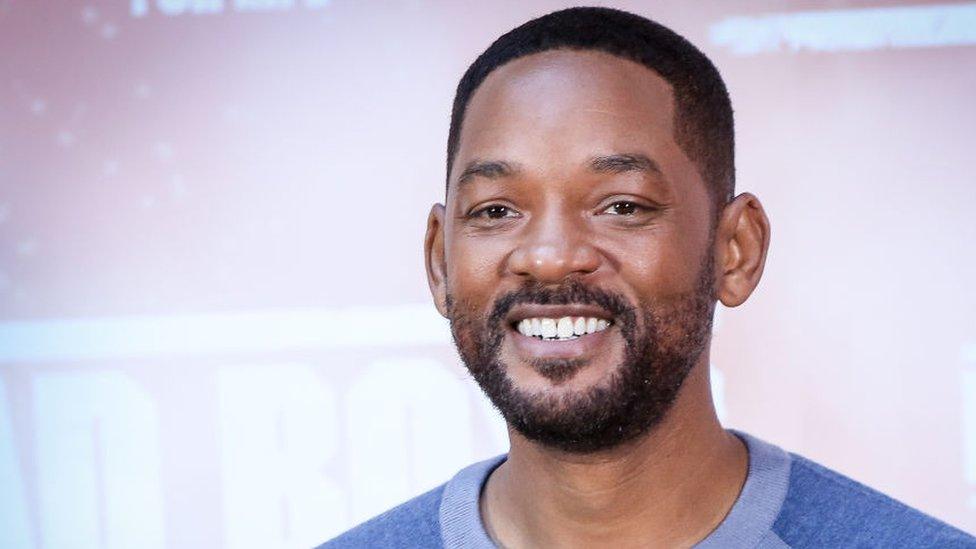
Actor Will Smith is an investor
"So when you are ready to sell that book or piece of art they are going to be there helping you to promote it, because, technically, they helped to make it in their own way."
While many people might question how "beneficial" it is to followers to vote on aspects of a creator's daily life, Ms Smith adds that it only further strengthens the bond between the two sides. "Almost the more mundane the questions, the more interested you get in the person. It feels relatable."
Ms Smith has been working on NewNew for the past two years. The idea developed out of a previous app she set up called Suprize. That asked members of the public to vote on what prizes it would give away to game-playing contestants.
Prior to becoming an entrepreneur she spent more than 10 years working for Canadian rapper Drake, first as his assistant, and then as a member of his management team. The pair were friends growing up in Toronto and she says that he is following NewNew's development.
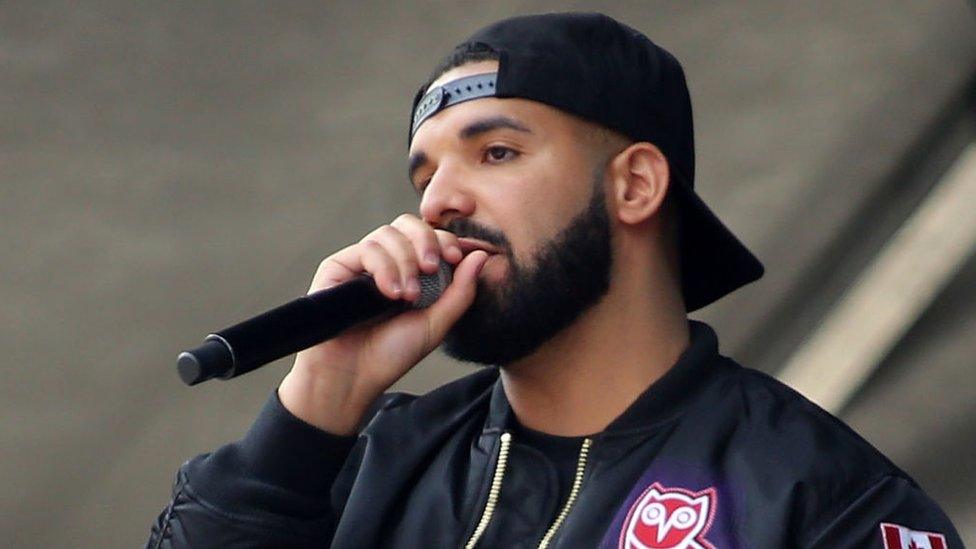
Courtne Smith worked for rapper Drake for more than a decade
Business psychologist Stuart Duff, a partner at UK firm Pearn Kandola, says that NewNew sounds fun, and should "create special bonds between creators and their followers". But he adds that in rare cases some bonds might become unhealthy.
"It may not take long for a creator to go to more and more extreme lengths to attract votes from their followers, ending in potentially self-damaging or humiliating scenarios," he says.
A NewNew spokeswoman says that the company "reserves the right to completely remove and ban any person and their content should they go against guidelines".
She adds: "The safety of all people on the platform is a top priority for us. The company reviews all content posted internally, and through AI, to flag any inappropriate content."
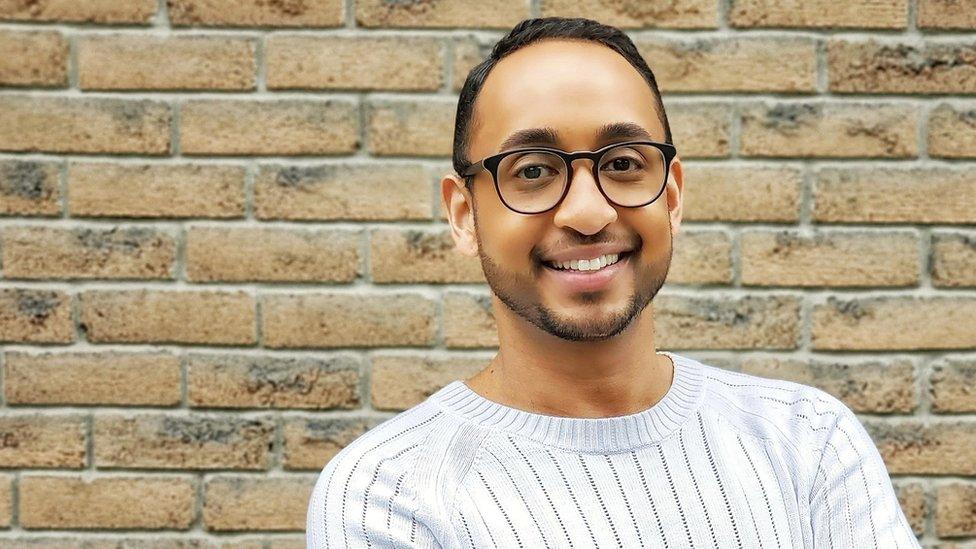
André Patrick follows a number of people on NewNew and says it "makes you feel closer to them"
André Patrick, a 34-year-old from Toronto, is a follower on NewNew. He says he joined initially so he could interact with a video streamer that he liked.
"NewNew is a cool new way to feel closer to a person, and it shows a different side to people that you don't always see," he says.
So could NewNew become the next big thing in social media? Will thousands or even millions of us start voting on what our favourite novelist or musician has for dinner?
It'll be down to you to decide.